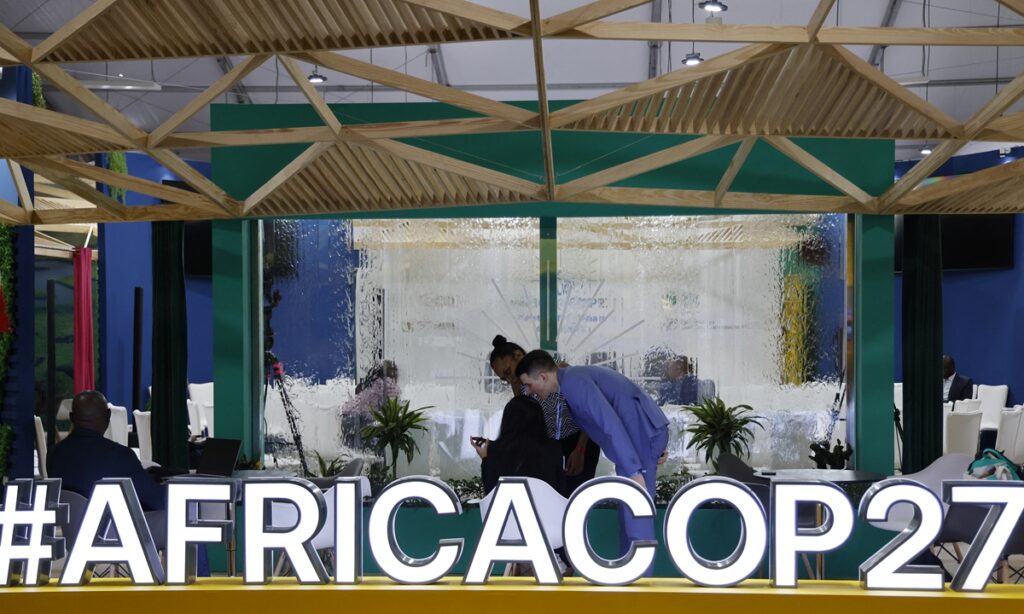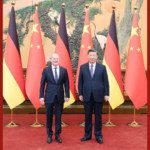COP27, which is organized by the UN, is being held in the Egyptian city of Sharm el-Sheikh from November 6 to 18, hoping to accelerate efforts to curb the world’s climate crisis. When the West adopts a “talk the talk” attitude, and as China sticks firmly to its role as a real force for action, it is clear who is winning the hearts in the domain of tackling climate change.
It is the first time since 2016 the UN climate talks have taken place on African soil, hence COP27 is being dubbed the “African COP.” As one of the biggest risk-bearers of climate change, African countries desperately seek international climate assistance.
China and Africa have a long history of cooperation when it comes to climate. China’s Africa Policy Paper published in 2006 stated China will promote cooperation with Africa on climate change by increasing scientific and technological cooperation. The country’s second Africa Policy Paper published in 2015 stipulated cooperation on climate change as being one of the six areas for which China’s assistance would be primarily directed. In 2021, the two sides released the Declaration on China-Africa Cooperation on Combating Climate Change, laying the foundation for more concrete cooperation schemes.
Tang Xiaoyang, a professor in the Department of International Relations at Tsinghua University, believes that African countries welcome China’s role in tackling climate change, and they endorse the concept of green development as China does. He said that China differs from Western countries in that China not only stresses “green,” but also “development.”
“The combination of the two is the bottleneck that developed countries encounter at their current development stage,” Tang told the Global Times.
According to media reports, the ultimate goal of this year’s climate talks remains subject to dispute – developed countries want to focus on ways to help developing nations phase out fossil fuels and transition to renewable energy, while developing countries want a commitment on financial support they need to address the climate-fueled disasters.
The contrasting demands from developed countries and developing ones and the lack of concerted global efforts to curb climate change should be attributed to the malfunctioning of the West-led global order, according to Song Luzheng, a research fellow at Fudan University.
“The unfair and unjust global order led by the West is the origin of the chaos the world is experiencing now. The squeeze of Russia’s strategic room by the US and NATO led to the Ukraine crisis. An energy crisis soon followed, prompting many European countries such as France and Germany to vie to pay record prices for coal. The resurgent coal demand clashes with climate plans to shift away from polluting fossil fuel. Meanwhile, the US and European countries, suffering from economic setbacks, cannot invest in more energy to climate change,” Song told the Global Times.
As the living costs in Europe sour, European countries have no extra resources to fulfill the promise made, that is, to double their financial support for climate-proofing projects in poorer countries to roughly $40 billion per year by 2025. In early September, when African leaders headed to the Netherlands seeking delivery on promised funds, their European counterparts largely skipped the meeting. In 2009, developed countries committed to give $100 billion a year, by 2020, to developing countries to help them reduce emissions and prepare for climate change. The target was missed and moved back to 2023.
For the West, “emission reduction” means calling for other countries to “reduce” under the banner of tackling climate crisis, while they themselves can “emit” at will.
The West only thinks of political gains rather than the fate of humanity. Swedish climate activist Greta Thunberg, who was born in a Western democracy, has made no contribution to tackling climate after being catapulted to worldwide fame, except for constantly engaging in public stunts. She reportedly shunned COP27, criticizing the conference for being “held in a tourist paradise in a country that violates many basic human rights.” Isn’t she supposed to understand that climate change can only be tackled through real action, not politics?
(Global Times)




